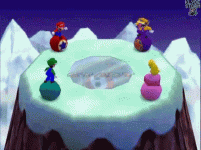Ben Jackson
Well-known member
Nobel Prizes between 1944---1946 signalled a new interpretation to the Nobel's will: rewarding writers who are considered pioneers. It was inspired by then secretary Anders Osterling, who advocated for Laureates that paved the way for new developments, providing world literature with new possibilities in outlook and language like the sciences.
The 1944 prize, which was awarded to Danish novelist and short story writer Johannes V Jensen, consisted of four writers shortlisted for the Prize: Jensen, French Poet Paul Valery, Gabriela Mistral and Swiss Novelist Charles Ferdinand Ramuz.
Hjalmar Hammarskjold advocated for Ramuz for meeting the requirement of Alfred Nobel's ideal and for his neutrality, as Ramuz was from Switzerland, a neutral country during World War ll. Valery was hailed for his pioneering achievement in French Poetry, while Gabriela Mistral was considered "the finest poet in Latin America, " as the Committee was pushing for candidates from Non-European regions. Jensen's works was finally seen as having human qualities and containing human experiences, after facing rejections in earlier stages for his Darwinian inspired works. During the voting process, Osterling and Siegfried Swiertz endorsed Paul Valery and Johannes Jensen, while Frederick Book voted for Jensen as his first choice and Mistral as second choice, Hjalmar Hammarskjold voted for Ramuz. Jensen got the most votes with Valery finishing second.
In 1945, Valery and Mistral returned to the shortlist in addition to two new names: Dutch Historian Johan Huizinga and German novelist Franz Werfel. Valery was voted as the first choice by the entire committee, but Valery, Huizinga and Werfel died within six weeks. Mistral, been the only candidate left in the shortlist, was voted without haste as that year's Laureate.
The 1946 Nobel shortlist consisted of Hermann Hesse, Andre Gide, Pasternak, Sholokhov and Winston Churchill. Hesse, who was dismissed in 1931 and 1939, was finally chosen after the committee evaluated him as "the most important novelist in German literature," with special attention given to Steppenwolf, Siddhartha and Glass Bead Game. Gide's homosexuality, in as much as the Committee hailed works like The Counterfeiters and The Immoralist, proved an obstacle to his candidature (sometimes, in the past, the committee dismissed writers for their personality and not really their works), while Pasternak was dismissed for his impenetrable poetry which "is filled with verbal torrents without substance." Sholokhov's The Don was dismissed for his distorted reality, even though it was an exciting and entertaining novel. The Don was also dismissed for shameless, distorted historical facts, work that lacks literary merit and basically intended to confuse and mislead. Winston Churchill's My Early Life, his novel Savrola and his memoir World Crisis, were dismissed for lacking literary merit, though Per Hallstrom heaped praise for Churchill's biography Marlborough. With these reports, Hesse was voted for the Nobel in 1946.
Haven't read Jensen, but Mistral isn't a bad choice at all, though I can't say she's better than Valery. Hesse, no doubt, remains one of the best choices the Nobel Committee ever made.
The 1944 prize, which was awarded to Danish novelist and short story writer Johannes V Jensen, consisted of four writers shortlisted for the Prize: Jensen, French Poet Paul Valery, Gabriela Mistral and Swiss Novelist Charles Ferdinand Ramuz.
Hjalmar Hammarskjold advocated for Ramuz for meeting the requirement of Alfred Nobel's ideal and for his neutrality, as Ramuz was from Switzerland, a neutral country during World War ll. Valery was hailed for his pioneering achievement in French Poetry, while Gabriela Mistral was considered "the finest poet in Latin America, " as the Committee was pushing for candidates from Non-European regions. Jensen's works was finally seen as having human qualities and containing human experiences, after facing rejections in earlier stages for his Darwinian inspired works. During the voting process, Osterling and Siegfried Swiertz endorsed Paul Valery and Johannes Jensen, while Frederick Book voted for Jensen as his first choice and Mistral as second choice, Hjalmar Hammarskjold voted for Ramuz. Jensen got the most votes with Valery finishing second.
In 1945, Valery and Mistral returned to the shortlist in addition to two new names: Dutch Historian Johan Huizinga and German novelist Franz Werfel. Valery was voted as the first choice by the entire committee, but Valery, Huizinga and Werfel died within six weeks. Mistral, been the only candidate left in the shortlist, was voted without haste as that year's Laureate.
The 1946 Nobel shortlist consisted of Hermann Hesse, Andre Gide, Pasternak, Sholokhov and Winston Churchill. Hesse, who was dismissed in 1931 and 1939, was finally chosen after the committee evaluated him as "the most important novelist in German literature," with special attention given to Steppenwolf, Siddhartha and Glass Bead Game. Gide's homosexuality, in as much as the Committee hailed works like The Counterfeiters and The Immoralist, proved an obstacle to his candidature (sometimes, in the past, the committee dismissed writers for their personality and not really their works), while Pasternak was dismissed for his impenetrable poetry which "is filled with verbal torrents without substance." Sholokhov's The Don was dismissed for his distorted reality, even though it was an exciting and entertaining novel. The Don was also dismissed for shameless, distorted historical facts, work that lacks literary merit and basically intended to confuse and mislead. Winston Churchill's My Early Life, his novel Savrola and his memoir World Crisis, were dismissed for lacking literary merit, though Per Hallstrom heaped praise for Churchill's biography Marlborough. With these reports, Hesse was voted for the Nobel in 1946.
Haven't read Jensen, but Mistral isn't a bad choice at all, though I can't say she's better than Valery. Hesse, no doubt, remains one of the best choices the Nobel Committee ever made.
Last edited:

